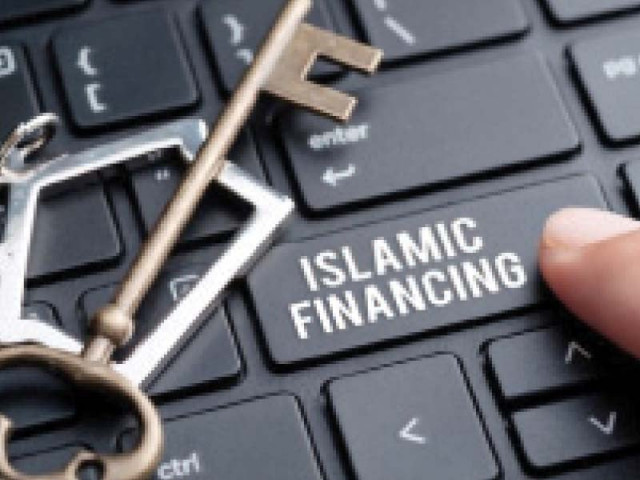Divine law in mortal hands
Need for transparency that improves trust, efficiency of Islamic finance industry

Islamic finance is underpinned by ethical and socially responsible business practices that vouches for fairness and transparency in business transactions and equity while taking care of the underprivileged.
Mainly, in the Islamic finance industry, Islamic banks channelise their resources and support business in a market segment that is expected to grow to $2.5 trillion.
The devices through which these broader aims are managed are known as Shariah guidelines.
Shariah boards usually approve the Shariah-compliant business and financial products: a second tier of governance in Islamic banking whose role is to show that bank operations and products comply with the Islamic legal injunctions.
These boards comprise Shariah scholars, who act as experts in Islamic jurisprudence. Their role has been at the forefront of expansion of this sector, but it has also created several headlines that scandalise their working.
The rewards for those religious scholars, who sit on Shariah boards of Islamic financial institutions, are substantial and economically large.
These rewards and the limited number of scholars on Shariah boards create several corporate governance issues for both the scholars and the functioning and integrity of the Islamic finance industry.
These include: 1) conflict of interest: how they balance between their obligation to Allah and private benefit seeking, 2) moral hazard: how earnestly they engage in ensuring Shariah compliance when they create networks among their ilk and/or other corporate elite and 3) adverse selection problems where the compliance with Shariah rules is compromised.
These issues can result in shirking in dispensing their fiduciary role while maximising their private rents, information leakage across competing market forces, collusion among religious scholars as well as between executives of companies, and potential adverse selection problems where products/ services that do not follow the set rules are approved.
Charitably, these religious scholars have been flattered into overstretching themselves while making the best of a bad situation in a sector where standardisation is still evolving.
Less charitably, they have played their hand very cynically in a market that is, at best, riddled with fuzziness and disputed at worst. This would be exemplified by the process where executives at banks collude with the scholars to stamp their products with the badge of Shariah compliance, and then pay handsomely for the service.
Research study
To investigate the manager-religious scholar collusion, researchers from the University of Plymouth searched for prominent religious scholars who sat on several board seats across approximately 50 Islamic banks in the Gulf Cooperation Council (GCC) region to pick a homogenous and representative sample.
Their work identifies that almost every second seat in the Shariah board of these Islamic banks is occupied by one of 20 prominent religious scholars.
They name this large concentration of religious scholars in Shariah banks “Shariah Scholar Entrenchment (SSE)” and note that this aspect is unique to the Islamic banking.
One possibility is that the high concentration of a handful of religious scholars is a facade to appease Muslim clients.
The contrary view of active collusion requires an attentive examination of the relationship between the two. To do so, the Plymouth University researchers examined the relationship between agency costs of GCC Islamic banks and the SSE.
Their results show that agency costs tend to increase with the increase in the proportion of prominent religious scholars in the Shariah boards. This work is forthcoming in Economics Letters.
They conclude that there is a clear scope for agents in Islamic banks to pursue their agenda through their selective choice of religious scholars.
Their inferences support the notion that managers potentially exploit the external non-shareholding stakeholders when the internal governance mechanism is efficient.
The study measures the efficiency of internal mechanism with the number of independent non-executive directors on company boards and results show that agency costs tend to decrease with the increase in non-executive directors on boards of these Islamic banks.
However, crucial questions relate to the prudential and ethical aspects in which Shariah boards are organised in Islamic banks.
On the basis of the Plymouth researchers’ evidence, there are clear indications that both sides are using the fuzzy situation for their own benefit. This situation asks for increased scrutiny and openness in the Islamic banking sector to maintain trust as well as expansion.
Otherwise, the sector may contract amid concerns regarding the lack of transparency and the self-perpetuating tendencies of key stakeholders entrusted with pecuniary and religious interest keeping roles.
Other key measures to enhance trust, which Islamic banks can introduce, are adopting open and transparent practices that provide details of executive and religious scholar compensation packages and benefits.
This should include details of frequency of Shariah board meetings; the number, type and complexity of contracts send for religious scholars’ approval and due diligence on the role of religious scholars considering their limits as they occupy several Shariah board seats across the GCC Islamic banks.
All these details will improve scrutiny of governance and compliance procedures in Islamic banks to evolve a better governance setup so that there are fewer cracks where managers or owners could collude with the scholars.
Furthermore, openness and a where many clients look for banks consistent with the values of their faith and ethical provisions.
The writer is a senior lecturer in finance at Swansea University and his research has been published in internationally reputed journals
Published in The Express Tribune, January 31st, 2022.
Like Business on Facebook, follow @TribuneBiz on Twitter to stay informed and join in the conversation.



















COMMENTS
Comments are moderated and generally will be posted if they are on-topic and not abusive.
For more information, please see our Comments FAQ